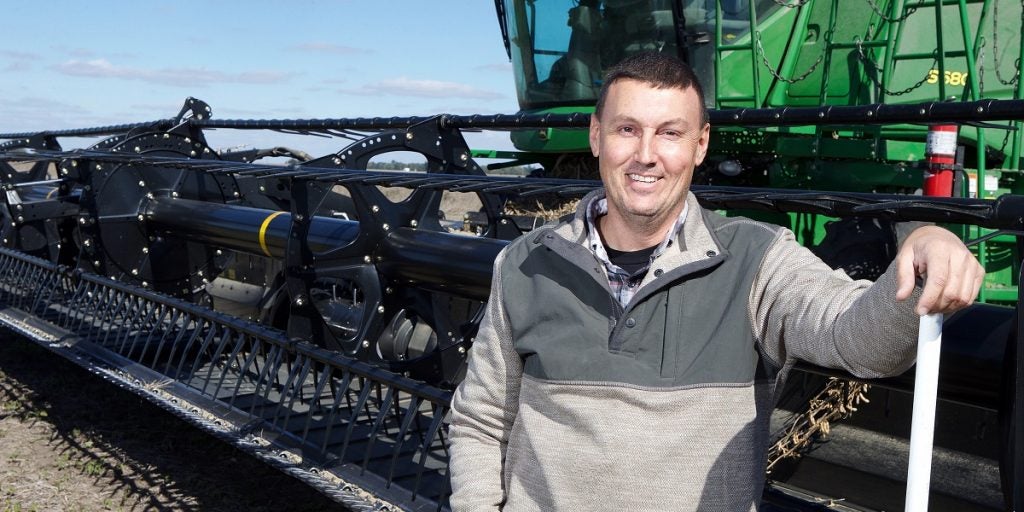I’m a farmer, and I’m testifying to Congress about climate-smart agriculture
By Brent Bible, a first-generation farmer in Lafayette, Indiana.
Farmers like me can make our businesses more economically resilient while also contributing to climate solutions, and we’re ready to roll up our sleeves and get to work.
That’s the message I’ll be sharing when I testify before the Senate Agriculture Committee today at a hearing about the Growing Climate Solutions Act — a recent bipartisan bill that would boost the agricultural economy and help make climate-smart agriculture the norm.
The act would make it easier for farmers to generate revenue from using climate-smart practices and selling credits into offset markets. This additional revenue stream could help farmers withstand economic difficulties and finance more widespread conservation practice adoption. Here’s how this would benefit farmers and our neighbors.

Farming is a tough business, but this policy can help
Farming is my passion, but it’s also my business — one that has become increasingly challenging in the face of trade wars, supply chain disruptions and extreme weather events.
To better withstand these external shocks, farmers need additional economic opportunities and greater adoption of practices that make our farms and agriculture as a whole more resilient.
Ongoing and diversified revenue streams, like those enabled by the Growing Climate Solutions Act, would help smooth the ups and downs of the commodity markets and keep us in business.
In addition, many of the conservation practices that could generate saleable environmental credits benefit farm businesses in other ways. For example, improved soil health can make crop yields more resilient in poor weather years, and optimized fertilizer use can result in direct economic savings on input costs.
On-farm conservation supports more resilient communities
Agricultural landscapes are critical for helping rural communities address climate impacts.
Conservation practices can slow, filter and strategically direct water runoff during heavy rains. This can reduce flood risk for downstream communities, protect water quality and recharge groundwater. Optimized fertilizer use also protects water quality and reduces greenhouse gas emissions.
Maintaining or restoring wetlands and adding more perennial plants to farmland will help store carbon and help prevent the worst effects of climate change. It can also provide other benefits for wildlife conservation, recreation and hunting.
Farmers and agricultural lands are vital for stabilizing the climate and increasing preparedness to climate impacts we can’t avoid.
Farmers and policymakers have a tremendous opportunity, with this bill and other common-sense climate solutions, to lead by example and make our farms and communities as resilient as possible for future generations.The Growing Climate Solutions Act can help farmers build resilience to climate change. Here's how. Share on X










